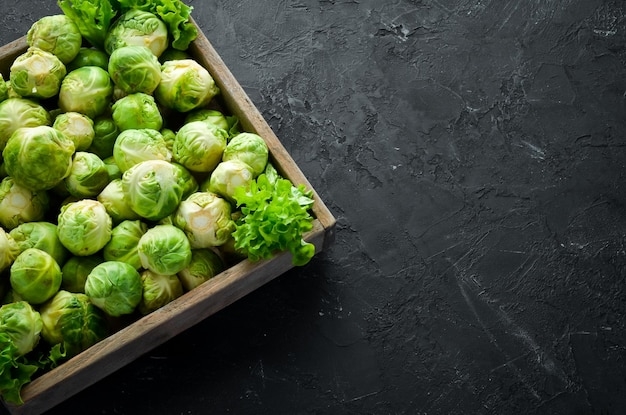Greek Dolmades are a popular dish made with grape vine leaves that are stuffed with a variety of ingredients such as rice, herbs, spices, and sometimes meat. They are usually served with a yogurt sauce and are considered a delicious and healthy Mediterranean delicacy. Here, in this article, we will outline the nutritional information of Greek Dolmades, including their protein, calcium, and iron content per 100g.
Protein Content
Protein is an essential nutrient that is required by our body to build and repair tissues. It also plays a vital role in the production of enzymes, hormones, and other molecules. Greek Dolmades are a good source of protein, with around 2.6g of protein per 100g serving.
Protein is made up of amino acids, and Greek Dolmades contain a good balance of essential amino acids that our body cannot produce on its own. Therefore, they provide a complete source of protein and can be included in a well-rounded diet.
Calcium Content
Calcium is an essential mineral that is required by our body to build strong bones and teeth. It also plays a role in muscle function, nerve transmission, and other important bodily functions. Greek Dolmades are a good source of calcium, with around 20mg of calcium per 100g serving.
Calcium is particularly important for growing children, pregnant and lactating women, and older adults. Including calcium-rich foods like Greek Dolmades in your diet can help promote optimal bone health and prevent the risk of osteoporosis and fractures.
Iron Content
Iron is an essential mineral that is required by our body to transport oxygen from the lungs to the tissues. It also plays a role in energy production and immune function. Greek Dolmades are a good source of iron, with around 1.3mg of iron per 100g serving.
Iron deficiency is a common problem worldwide, particularly among women, young children, and vegetarians. Including iron-rich foods like Greek Dolmades in your diet can help prevent the risk of iron deficiency anemia and promote optimal health.
Other Nutritional Information
In addition to protein, calcium, and iron, Greek Dolmades also provide other essential nutrients such as fiber, vitamins, and minerals. They are also low in fat and calories and can be included in a healthy diet plan.
However, it is important to note that Greek Dolmades that contain meat may be higher in saturated fat and cholesterol. Therefore, if you are watching your intake of these nutrients, it may be best to opt for vegetarian versions of this dish.
FAQs
Q. Are Greek Dolmades vegetarian?
A. Greek Dolmades are usually made with a vegetarian filling of rice, herbs, and spices. However, some versions may also contain meat, such as beef or lamb.
Q. Is it safe to eat grape vine leaves?
A. Yes, it is safe to eat grape vine leaves that have been properly prepared. The leaves are usually blanched or boiled before being stuffed with the filling and cooked.
Q. Are Greek Dolmades gluten-free?
A. Greek Dolmades made with rice are naturally gluten-free. However, it is important to check the ingredients of any store-bought or pre-made versions that may contain wheat or other gluten-containing ingredients.
Q. How can I make Greek Dolmades at home?
A. To make Greek Dolmades at home, you will need grape vine leaves, rice, herbs, spices, and a filling of your choice (meat or vegetarian). The leaves are stuffed with the filling and steamed or boiled until cooked. There are many recipes and variations available online.
Q. What is the best way to serve Greek Dolmades?
A. Greek Dolmades are usually served with a yogurt sauce or tzatziki and can be enjoyed as an appetizer or a main dish. They are often accompanied by a salad and other Mediterranean side dishes.
Q. How many calories are in Greek Dolmades?
A. The calorie content of Greek Dolmades can vary depending on the filling and method of preparation. However, a typical serving of Greek Dolmades contains around 100-150 calories.
Q. Can Greek Dolmades be frozen?
A. Yes, Greek Dolmades can be frozen for later consumption. They should be wrapped tightly in plastic wrap or aluminum foil and stored in an airtight container. To reheat, simply steam or boil until hot.
Q. Are there any health benefits of Greek Dolmades?
A. Yes, Greek Dolmades provide several health benefits, including a good source of protein, calcium, and iron. They are also low in fat and calories and can be included in a healthy and balanced diet.
Q. Are there any risks or precautions associated with eating Greek Dolmades?
A. While Greek Dolmades are generally considered safe to eat, there is a risk of contamination if they are not handled or prepared properly. It is important to ensure that the grape vine leaves are washed and blanched, the filling is cooked thoroughly, and any leftovers are refrigerated promptly. If you have any concerns or allergies, it is always best to consult your healthcare provider.
Conclusion
Greek Dolmades are a flavorful and nutritious dish that can be enjoyed by people of all ages. They provide a good source of protein, calcium, and iron, as well as other essential nutrients such as fiber, vitamins, and minerals. Whether you are a fan of meat-filled or vegetarian versions, Greek Dolmades can be a delicious and healthy addition to your diet. Try making them at home or searching for a local Mediterranean restaurant to give them a try!

















































